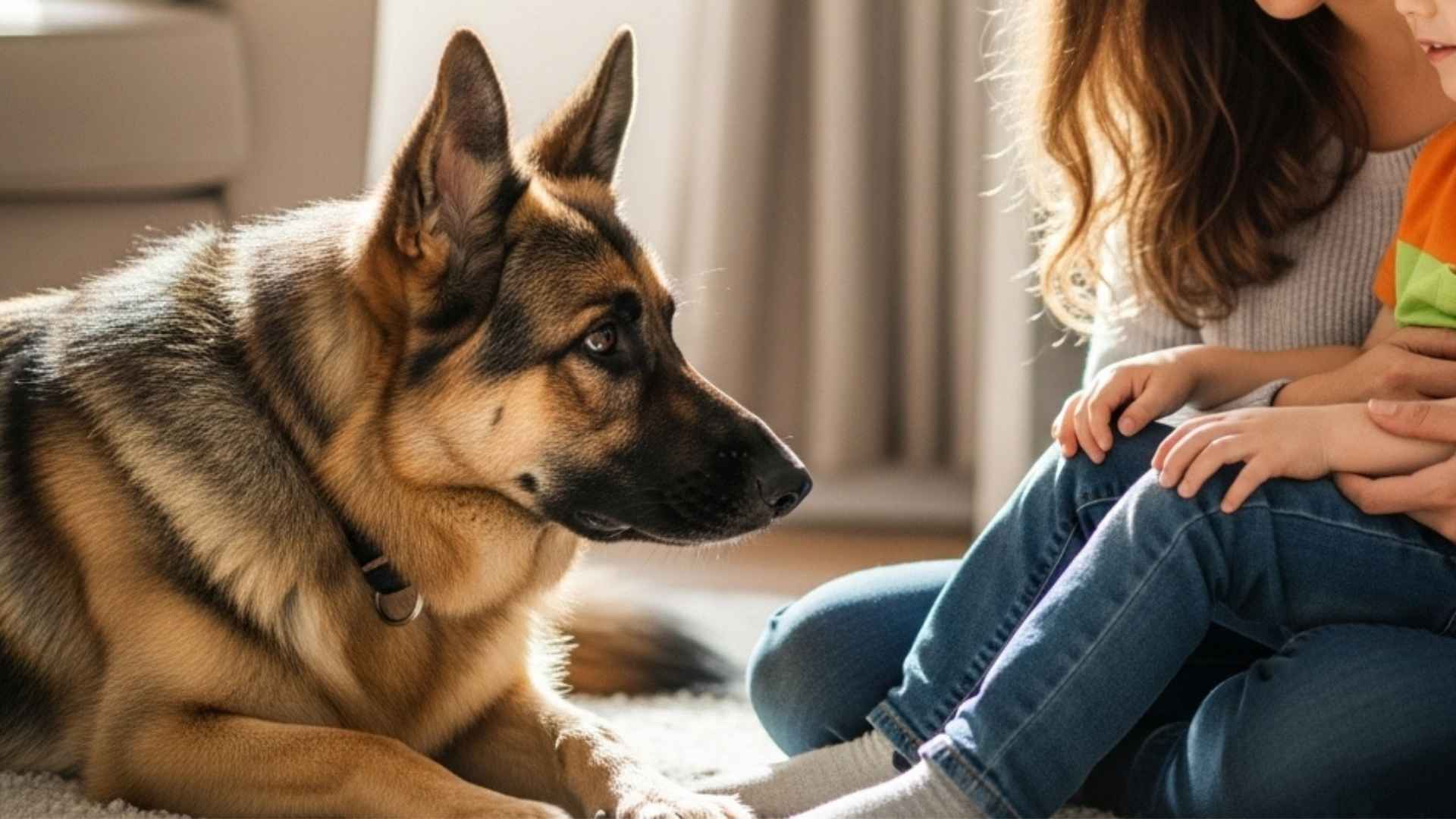Living alone and raising a child comes with unique challenges—security, companionship, and emotional balance top the list. A study by the American Kennel Club found that single dog owners were 36 percent less likely to die from cardiovascular disease than those without pets.
Guard dogs offer more than just protection; they also provide consistent emotional support. For single parents juggling both work and parenting, a trustworthy canine companion can ease stress and reduce feelings of isolation.
However, not every large breed adapts well to apartment life. It takes careful selection—based on temperament, energy levels, and training potential—to find a dog that excels in both guarding roles and indoor living.
In this article, we explore seven dog breeds that blend loyalty, protection, and calmness indoors. By the end, you’ll understand how to choose a faithful guardian that suits your single-parent, apartment lifestyle.
Best Guard Dogs for Single Parents in Apartments
1. German Shepherd

When it comes to apartment living with a guard dog, the German Shepherd is the classic go-to. Equal parts brain and brawn, this breed is protective, loyal, and highly trainable—perfect for a single parent who needs a watchdog that doubles as a family companion.

The catch? Their energy is through the roof, so expect to put in daily exercise and mental stimulation.
PetMD suggests that in tighter living spaces, their clever minds need jobs: puzzle toys, obedience drills, or creative playtime. Skip that, and you might find your sofa re-styled as “DIY modern art.”
Their thick double coat is a shedding machine, so brushing three to four times a week (plus a good vacuum) is non-negotiable.
Owner insights
Thrives on jobs—idle Shepherds invent mischief.
Early obedience builds unshakable reliability.
Sensitive to the owner’s moods and stress.
Lifestyle match: They thrive if you work from home or have time to keep them engaged. With early training and proper socialization, you’ll raise an apartment-happy protector who’s both sharp and snuggly.
2. Akita
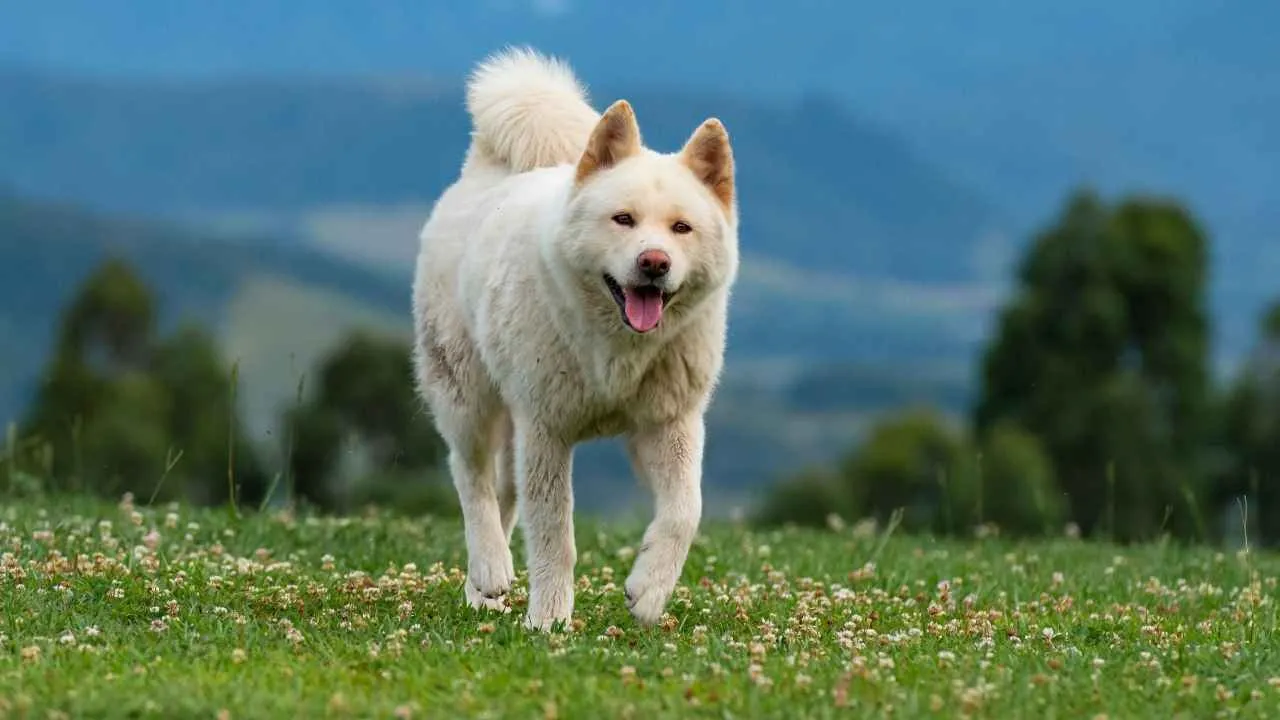
If the German Shepherd is the overachiever, the Akita is the strong, silent type. Aloof with strangers but deeply bonded with family, this breed acts like a personal bodyguard—while secretly enjoying couch-potato life indoors.
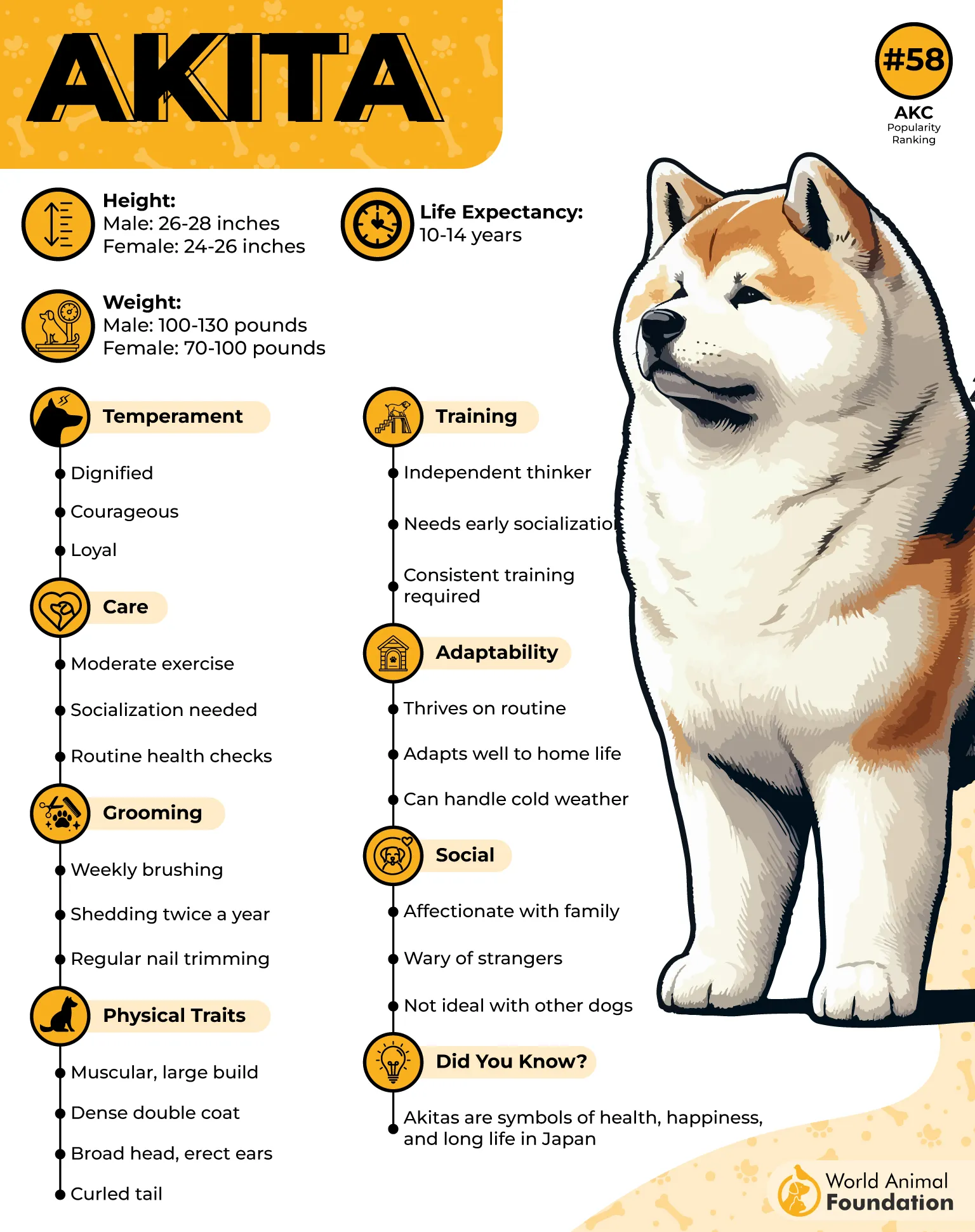
For apartment living, daily walks and mental stimulation are essential, but don’t expect eager fetch sessions.
Owner insights
Strong-willed; respect earns cooperation.
Reserved, not a “dog-park” socialite.
Needs firm, calm leadership always.
Their thick double coat? Think “fur blizzard” twice a year. The good news: regular brushing and the occasional bath keep the shedding manageable. Unlike the Shepherd’s constant hustle, the Akita is more selective with their energy and doesn’t need endless exercise.
For a single parent who values loyalty and calm protection, the Akita delivers—but you’ll need structure, patience, and a sense of humor. And here’s their quirky bonus: Akitas are fastidious, often grooming themselves like cats. Protective and tidy? That’s an apartment win.
3. Cane Corso
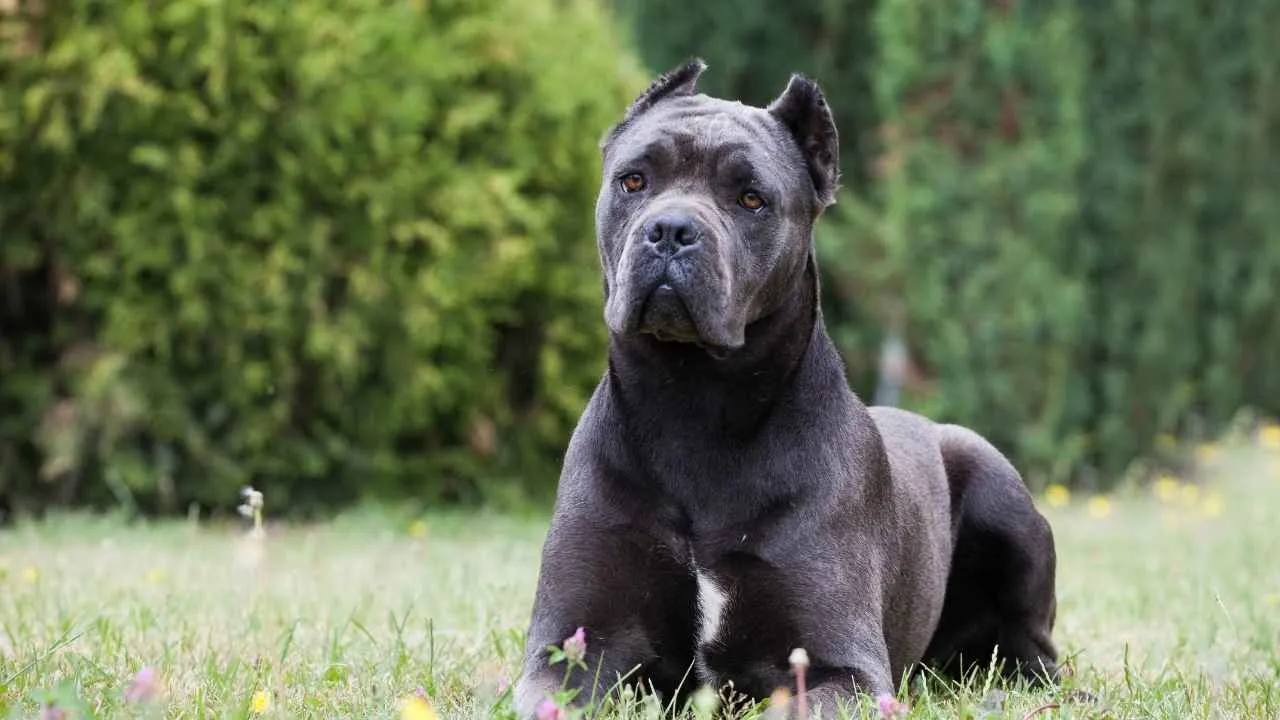
Now, if German Shepherds are the scholars and Akitas are the philosophers, the Cane Corso is the tank—intimidating yet surprisingly affectionate.
This powerhouse thrives on guarding, making it an ideal partner for a single parent needing serious protection in an apartment. Their secret? Despite the size, they adapt well indoors when trained and exercised properly.
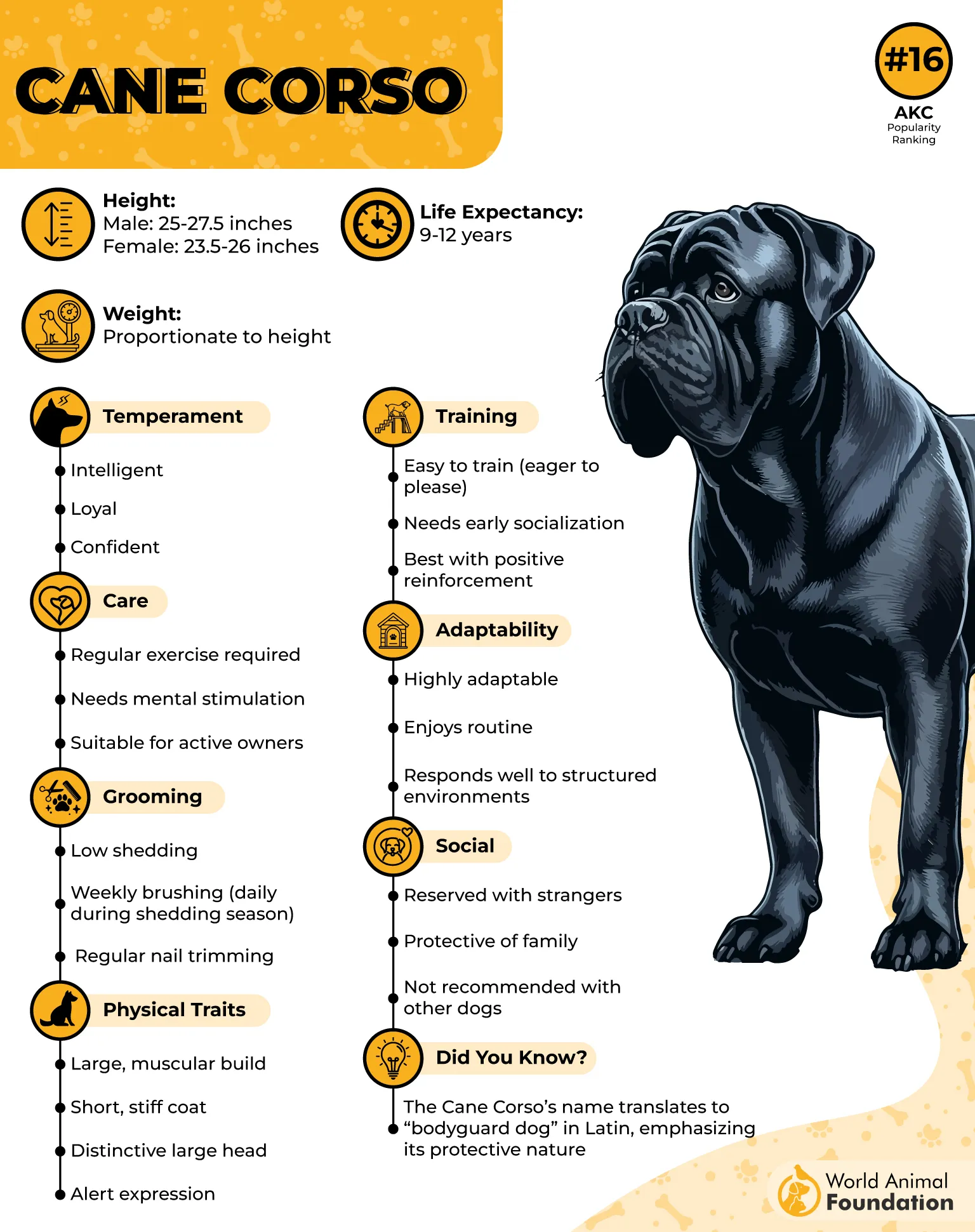
Hillspet notes that the grooming routine is refreshingly simple: a quick brush once a week, nail trims, and occasional baths. But don’t underestimate their need for structure. Without obedience training and consistent walks, that “lap dog” tendency comes with 100+ pounds of restless energy.
Owner insights
Protective even in calm settings.
Needs mental stimulation, not just walks.
Can be wary of strangers naturally.
For committed owners who can balance firm guidance with affection, the Cane Corso becomes both guardian and cuddle companion. Their quirks even include hallway surveillance—yes, they’ll literally watch your door like security staff on salary. With time and training, they’re a formidable yet loving roommate.
4. Rottweiler
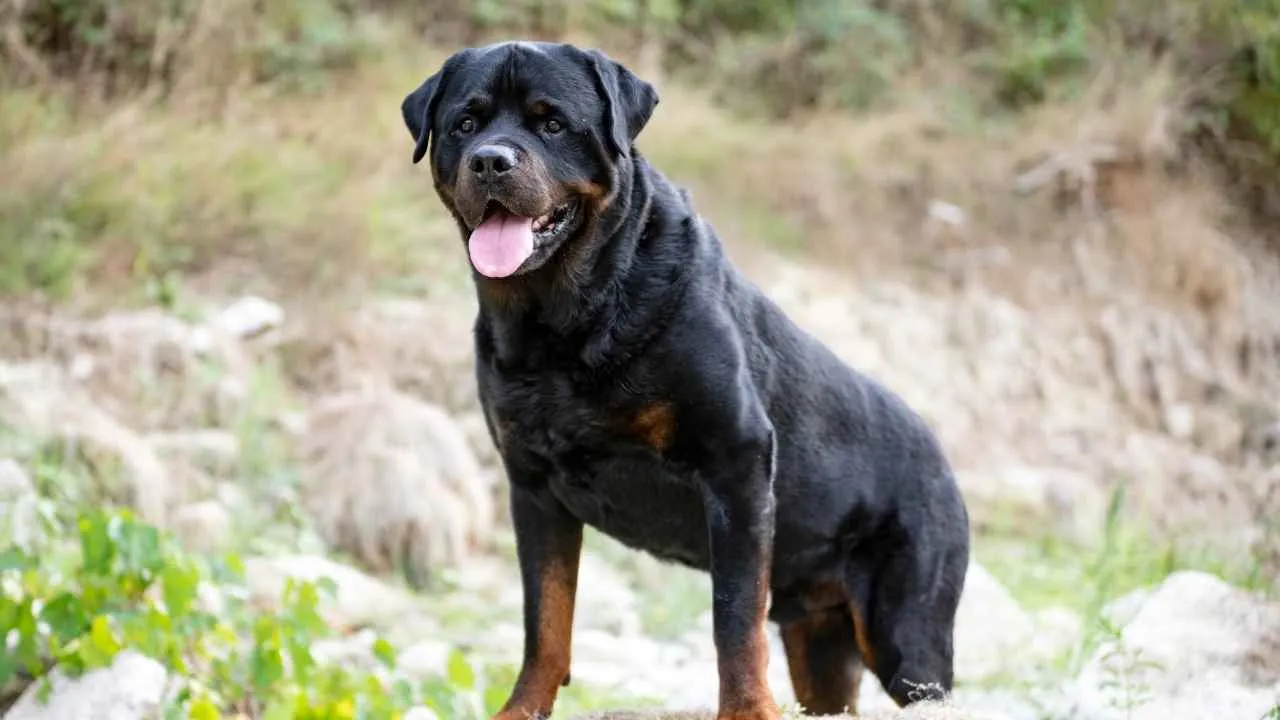
If the Cane Corso is the tank, the Rottweiler is the armored SUV—sleek, intimidating, and surprisingly affectionate inside.
Known for their loyalty and calm indoor demeanor, Rotties can adapt beautifully to apartment living, provided they get enough daily exercise. Think brisk walks and training sessions—not just a quick lap around the block.
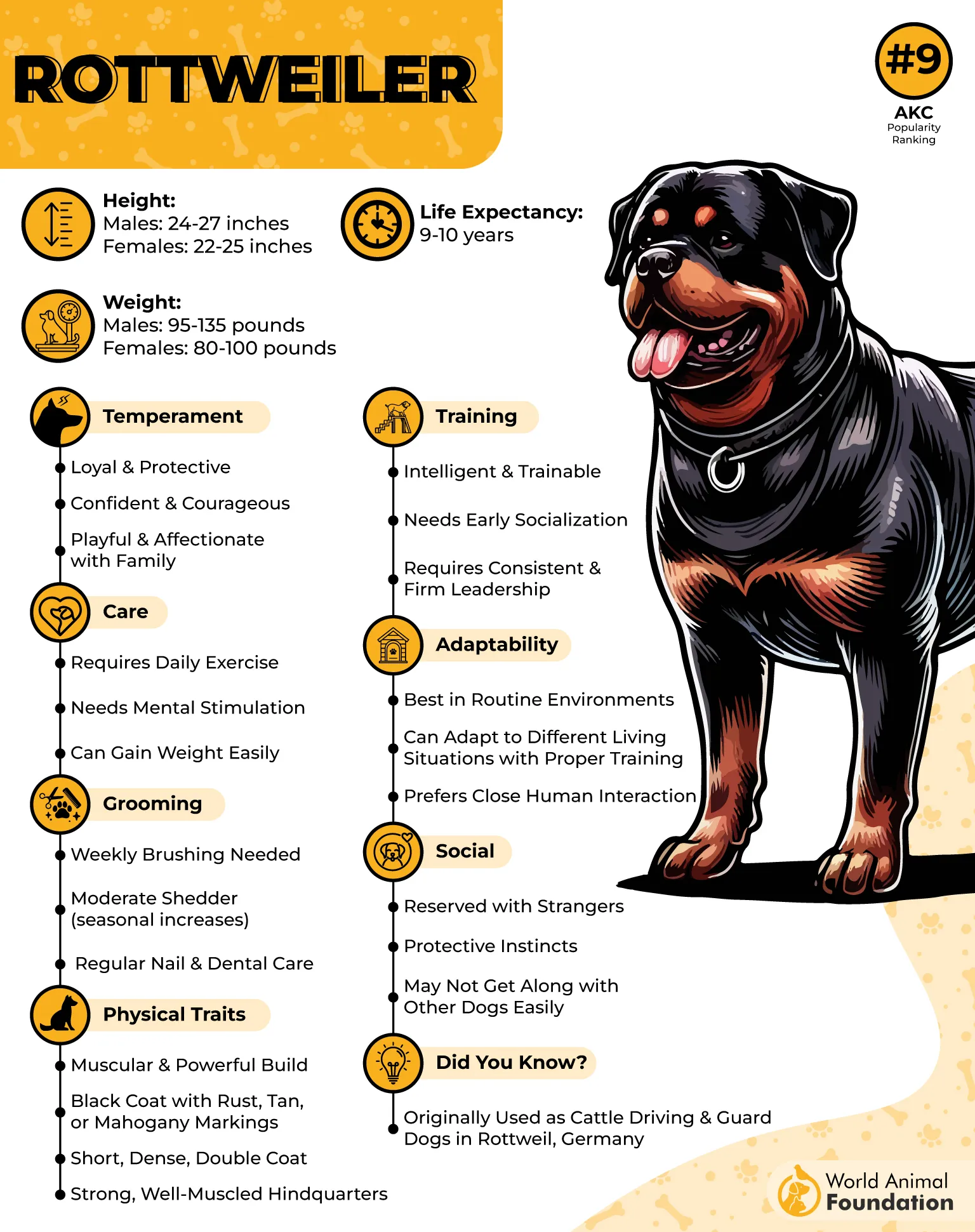
Grooming is mercifully low-maintenance thanks to their short coat, though they do shed seasonally. Regular brushing and nail care will keep them sharp-looking without much effort. Allergies? Less of a concern here compared to fluffier breeds.
Owner insights
Bonds deeply, dislikes long solitude.
Playful clown, once trust is earned.
Needs clear household rules early.
For single parents, the Rottweiler is a confident protector and gentle cuddle partner with family. With proper socialization and consistent leadership, they’ll guard your home like Fort Knox but save their goofball side just for you.
5. Great Dane
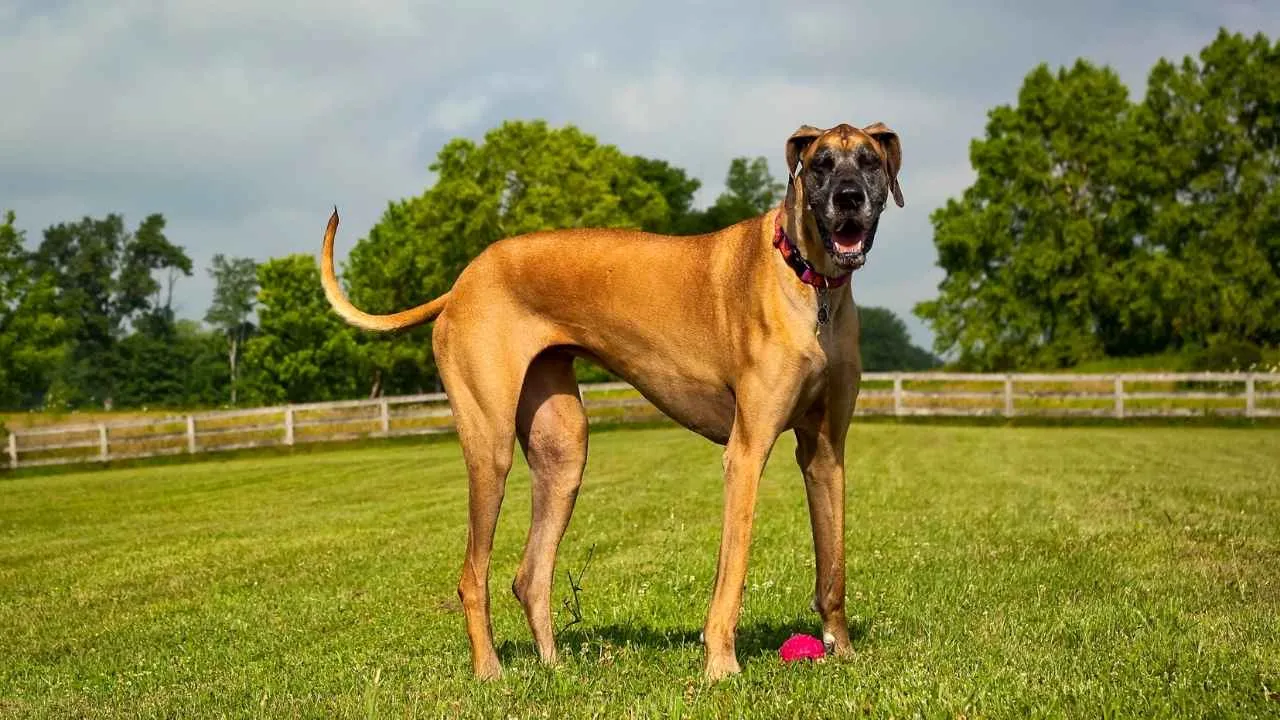
Next up: the “gentle giant” that makes neighbors stop and stare. Great Danes may be huge, but they’re also couch potatoes at heart—making them surprisingly great apartment dogs. Short bursts of exercise keep them happy, and afterward, they’re usually sprawled across half your living room.
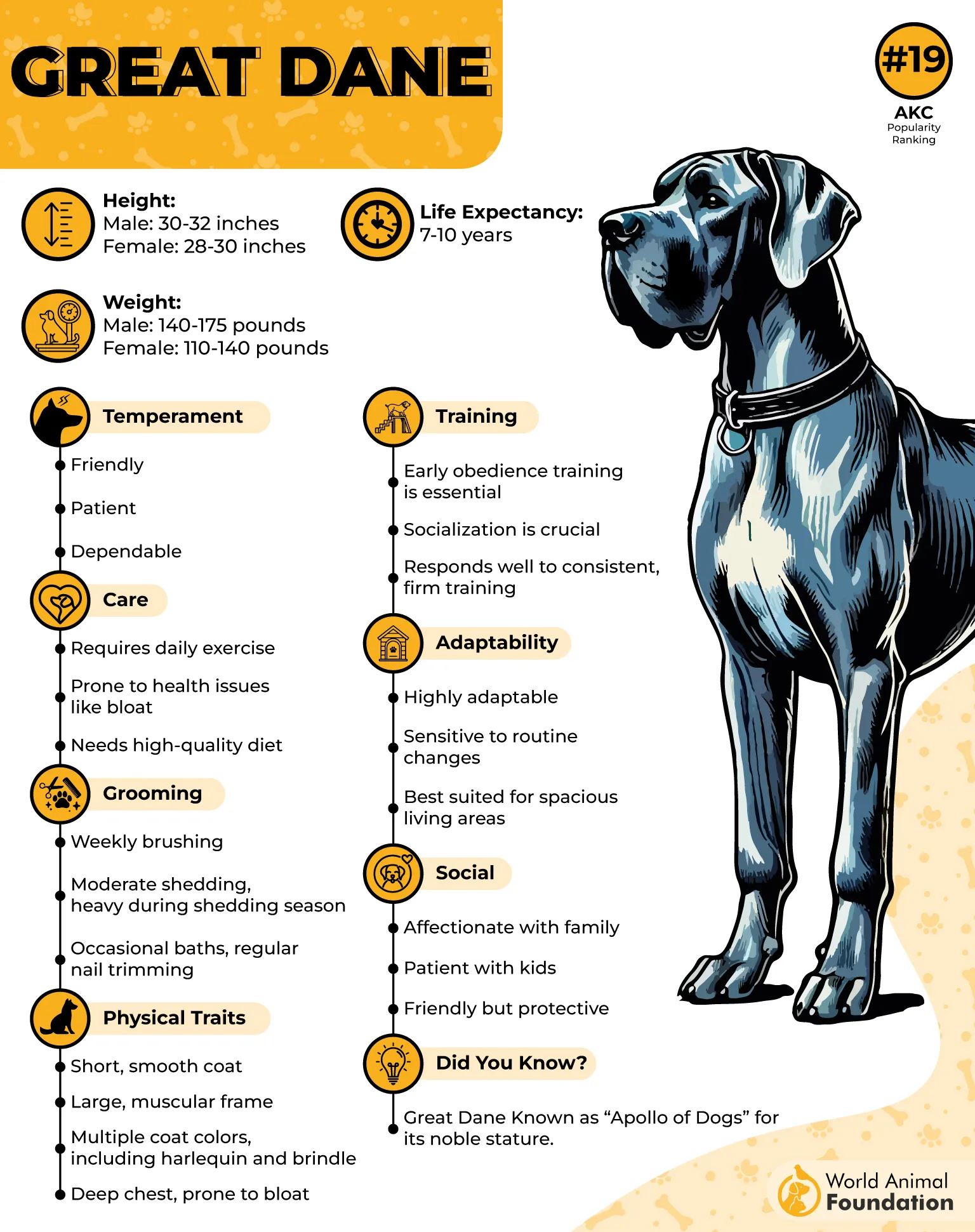
Purina adds that their short coat means easy grooming—weekly brushing and occasional baths. The bigger challenge? Finding space on the couch when they decide to claim it as their throne. Allergies are generally manageable since they’re not heavy shedders.
Owner insights
Surprisingly fragile joints despite size.
Loves soft beds more than floors.
Prone to separation anxiety quickly.
For single parents, a Great Dane offers unmatched companionship and an intimidating presence at the door. The bonus? Behind their towering frame is a sweet-natured dog who thinks they’re a lap dog (and yes, they’ll try to prove it).
6. Great Pyrenees
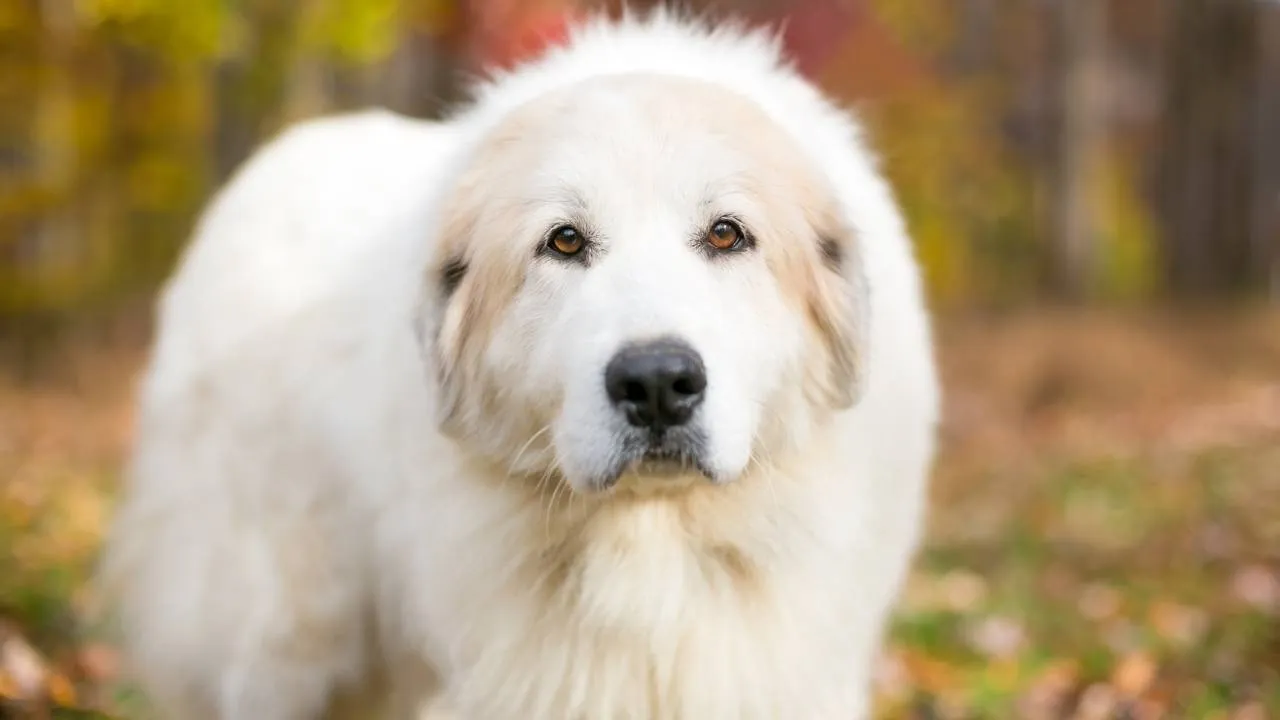
If the Great Dane is the giant goof, the Great Pyrenees is the wise guardian. Originally bred to guard livestock, these dogs bring their calm, watchful nature indoors. They’re mellow in apartments as long as they get regular walks and a job to do—like watching over your kids or glaring at the mailman.
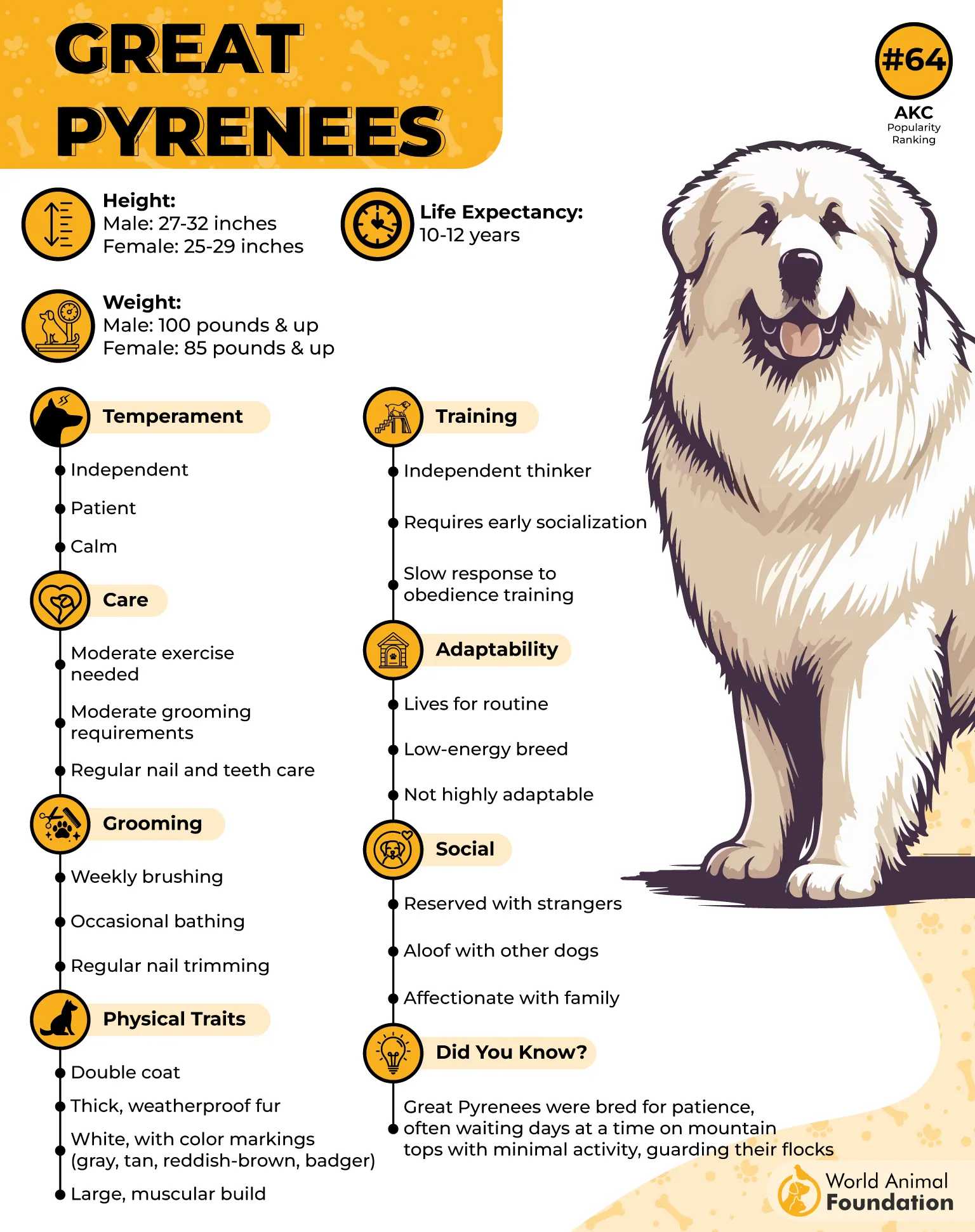
That gorgeous double coat, however, is a shedding machine. Frequent brushing (and a decent lint roller budget) will keep things manageable. On the upside, they’re relatively low-maintenance for baths, preferring to stay fluffy without constant grooming.
Owner insights
Nighttime barking is instinctual guard behavior.
Independent thinker, not eager to please.
Prefers cooler climates for comfort.
For single parents, their protective instincts are gold—they’re affectionate with family but discerning with strangers. Think of them as your built-in security system, just a lot fluffier.
7. Bernese Mountain Dog
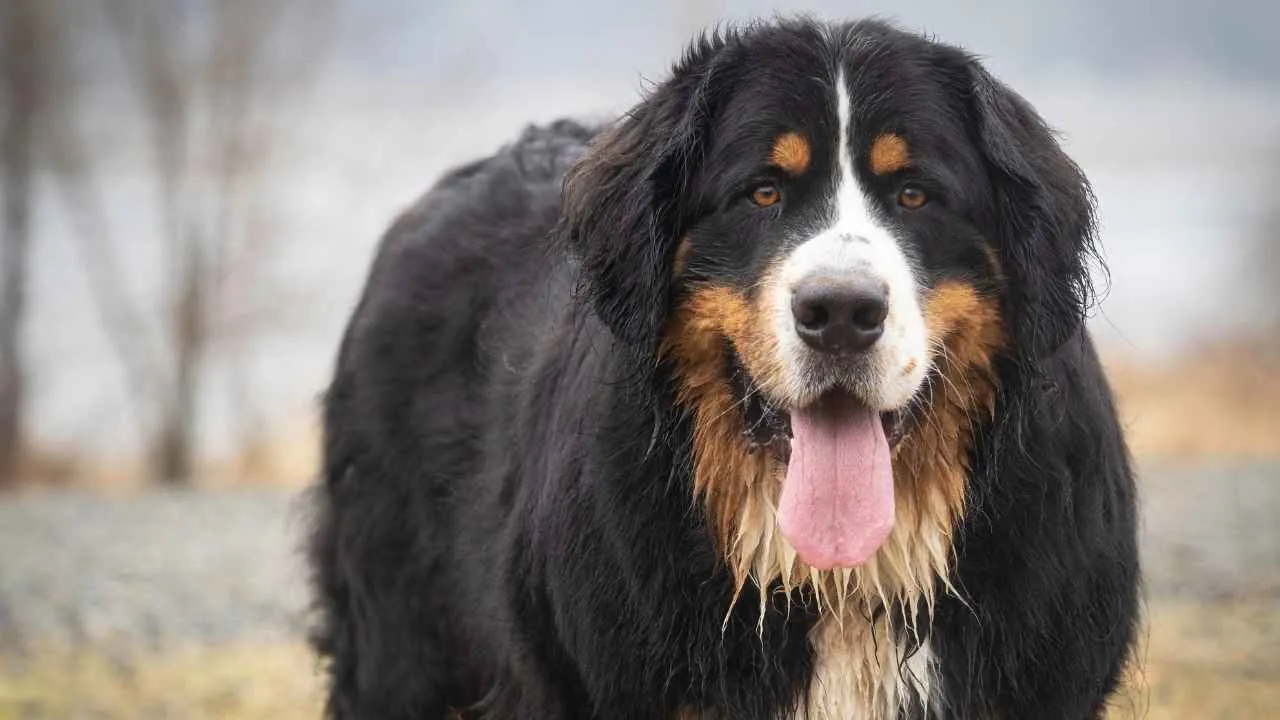
Finally, the Bernese Mountain Dog—the loving family member you didn’t know you needed. Despite their size, they’re gentle giants who thrive in apartment life if given daily exercise. Their sweet and patient temperament makes them fantastic for homes with children.
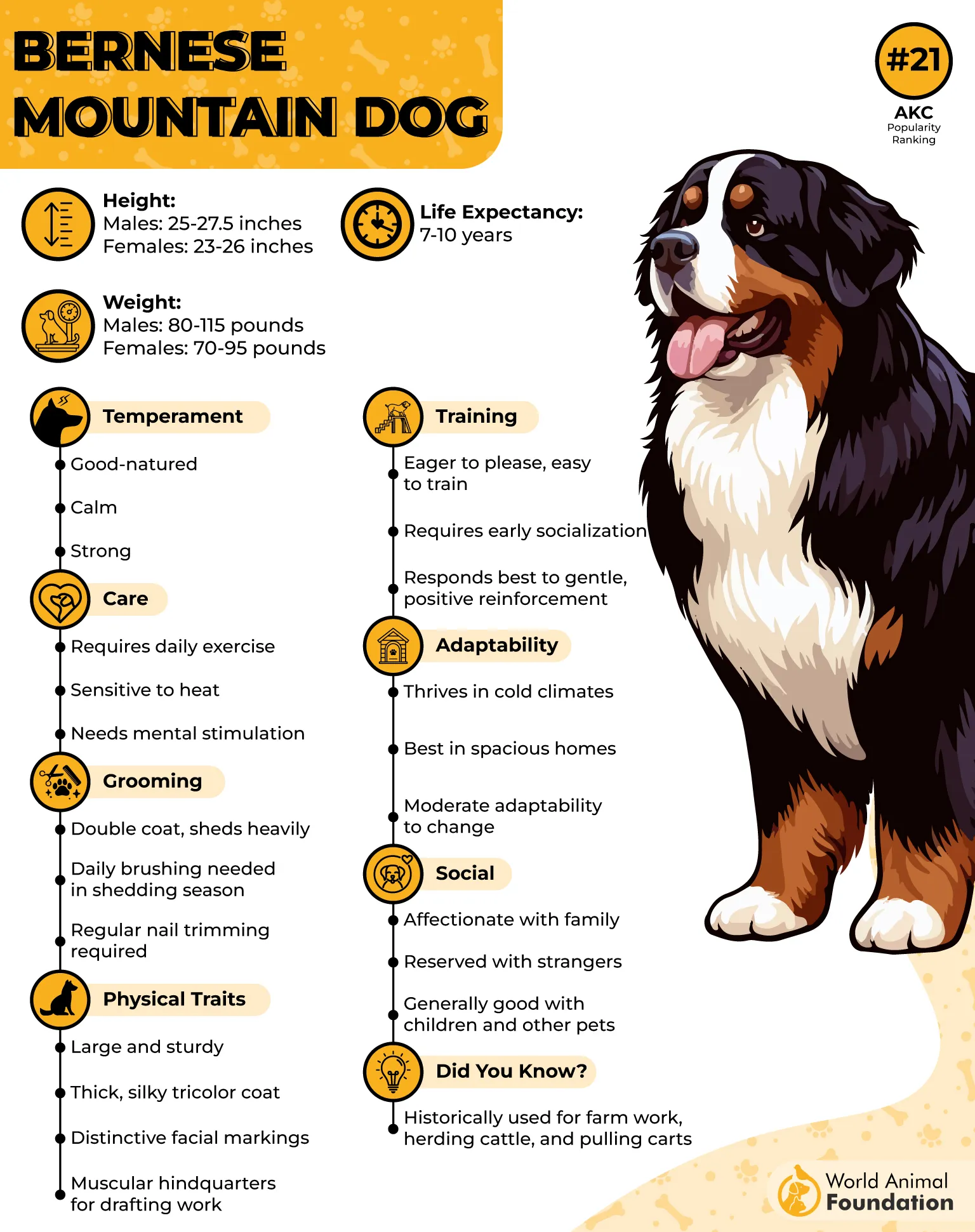
Grooming? Oh yes, the fluff is real. Weekly brushing and seasonal coat blowouts are part of the package, but their stunning tri-color fur is worth it. Be prepared for some shedding, and stock up on lint rollers.
Owner insights
Sensitive stomachs; diet needs care.
Shorter lifespan than many large breeds.
Affectionate leaners—lap dogs in spirit.
For single parents, Berners bring warmth, loyalty, and a dash of comic relief. They’re protective enough to make you feel secure but goofy enough to remind you that life doesn’t always have to be so serious.
Conclusion
Choosing the right guard dog isn’t just about size or a loud bark—it’s about balancing temperament, natural guarding instincts, and your unique living situation.
Whether you’re looking at protection dogs like the Doberman Pinscher, Belgian Malinois, or even a loyal Boxer, the right fit depends on lifestyle, family, and how much time commitment you can invest in proper training.
Remember, many guard dog breeds, with their muscular build and protective nature, can also make excellent family pets when provided with consistent training and sufficient exercise.
Even Golden Retrievers or a well-socialized rescue dog can surprise you with their instinct to protect the house, children, and even other animals or other pets in daily family life.
From flock guardian types with a thick coat to naturally friendly breeds that still serve as fierce threats against intruders, the right breed will become both your protector and your best friend.
At the end of the day, these dogs aren’t just animals—they’re loyal furry friends with the strength and experience to keep you safe while blending seamlessly into your family’s world.


